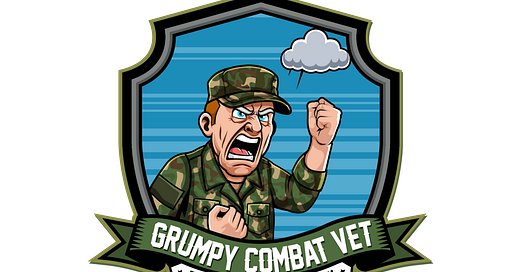Howdy,
I’m currently in a below-average Embassy Suites in Tulsa, Oklahoma. Fine people. They’ve been nothing but polite.
But, man, there’s a reason the Afghan Air Force pilots who trained here always said, “I never want to go back there again, brother.”
Facts.
Anyway, sorry I’ve been MIA the last week or so. I snagged some furniture from my Mom, and I’m sc…
Keep reading with a 7-day free trial
Subscribe to Grumpy Combat Veteran to keep reading this post and get 7 days of free access to the full post archives.


